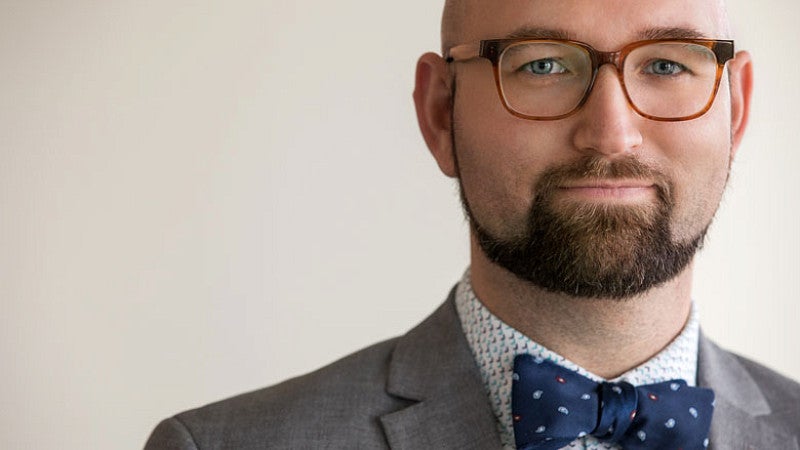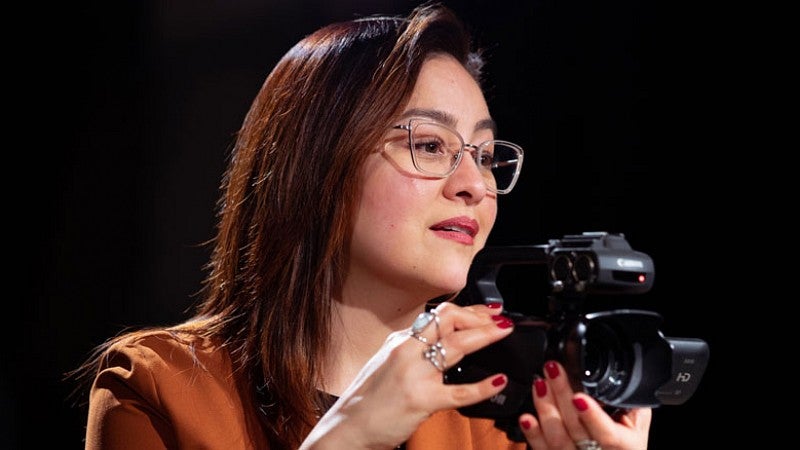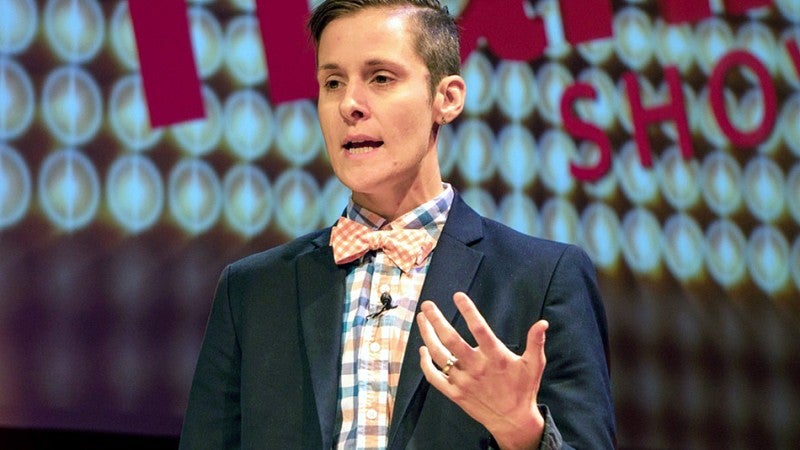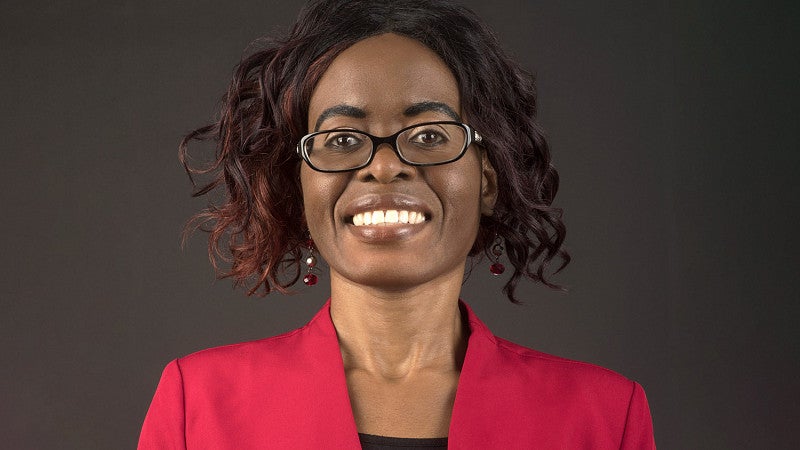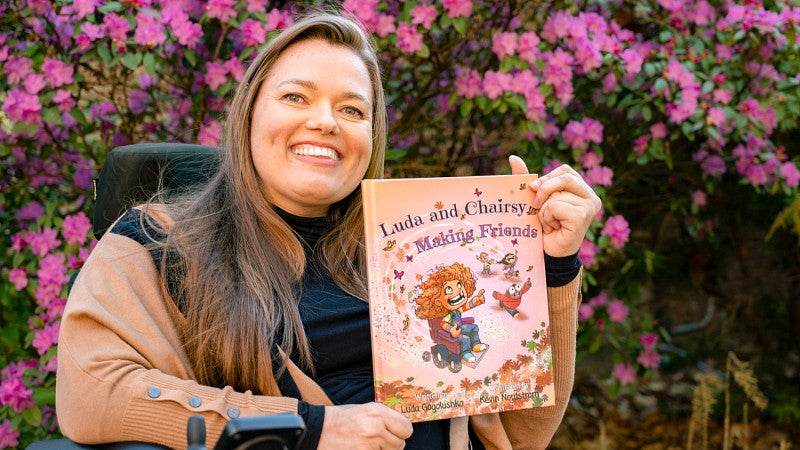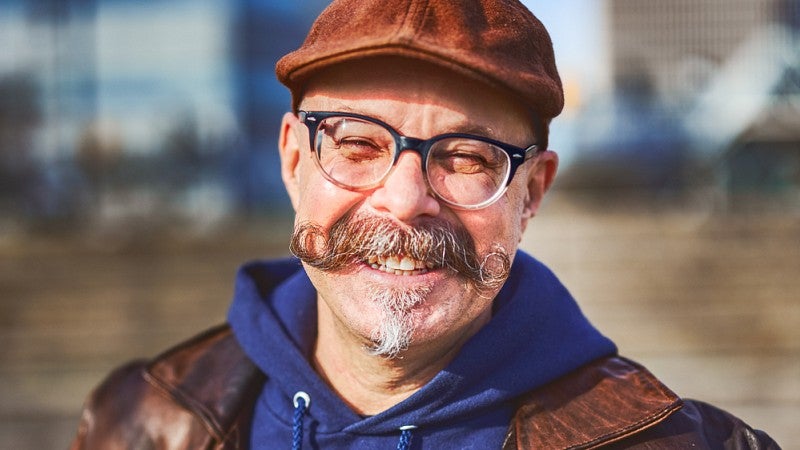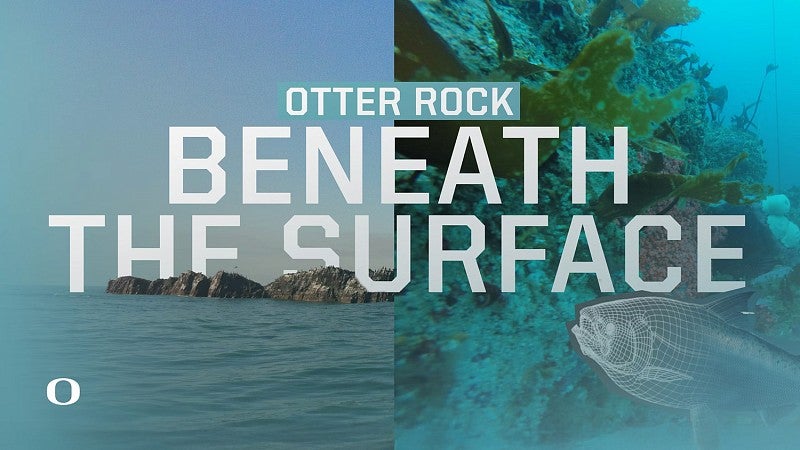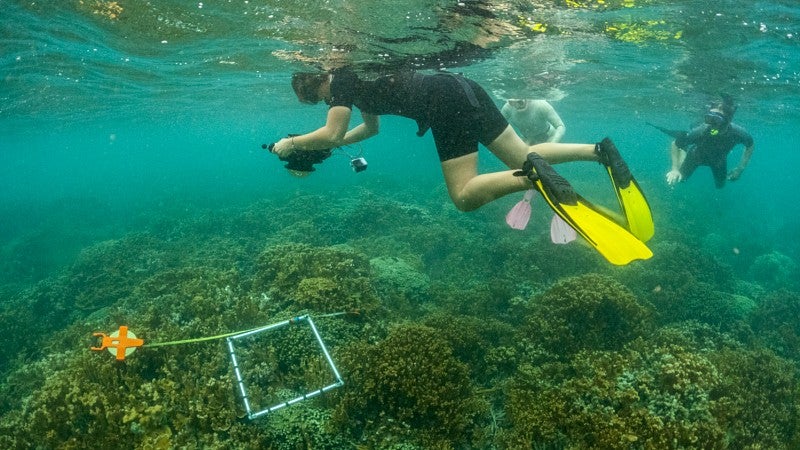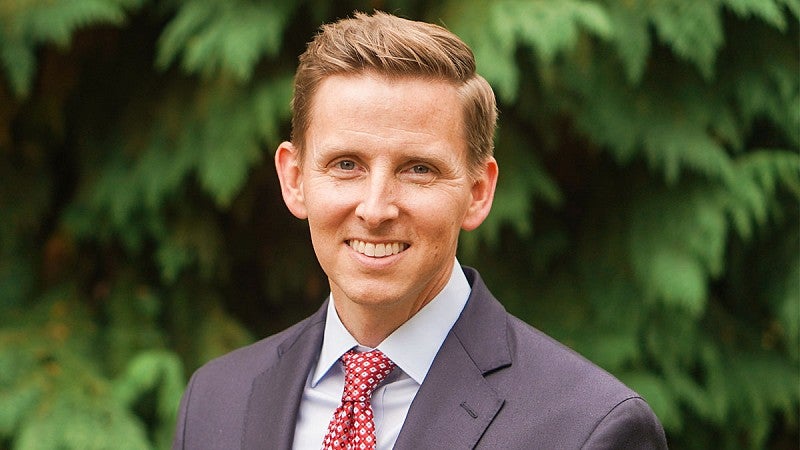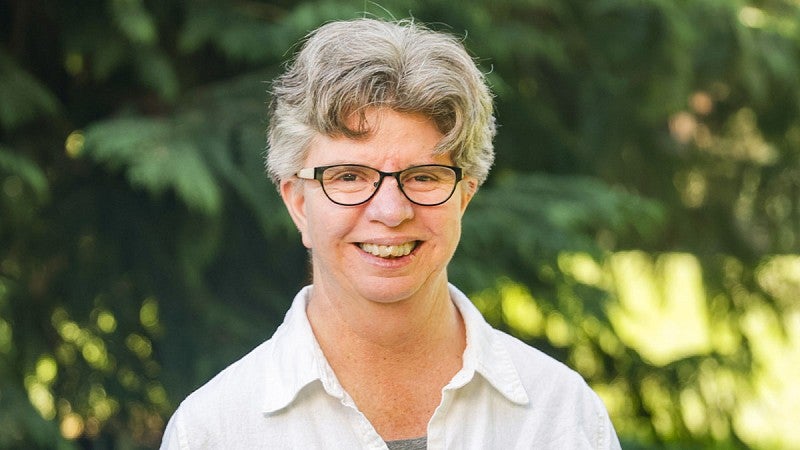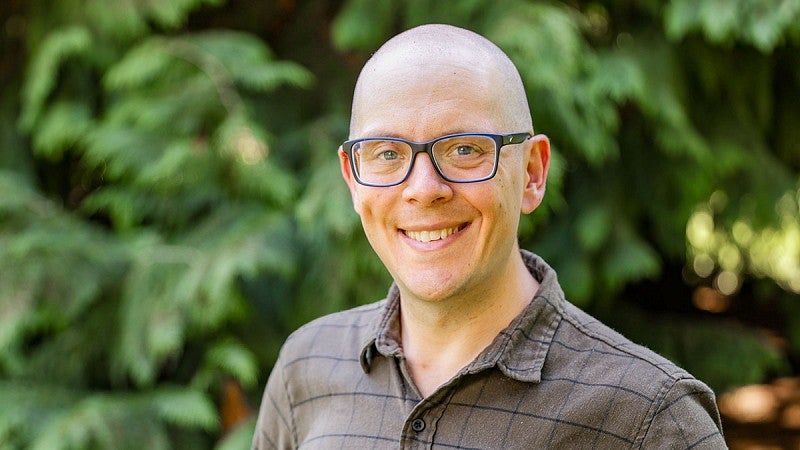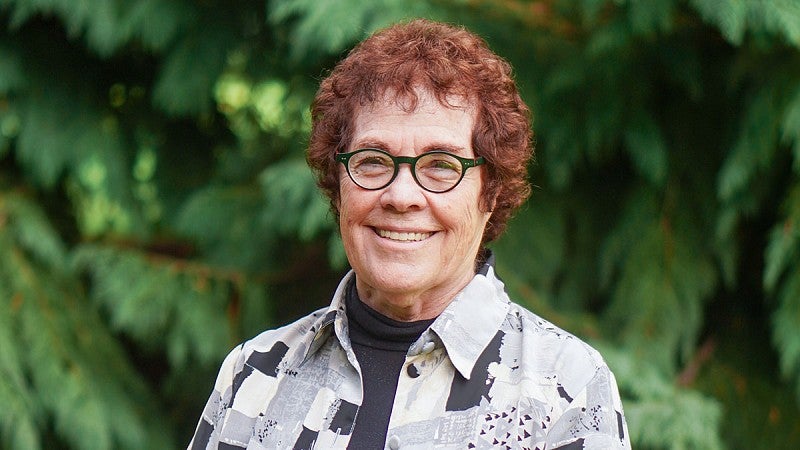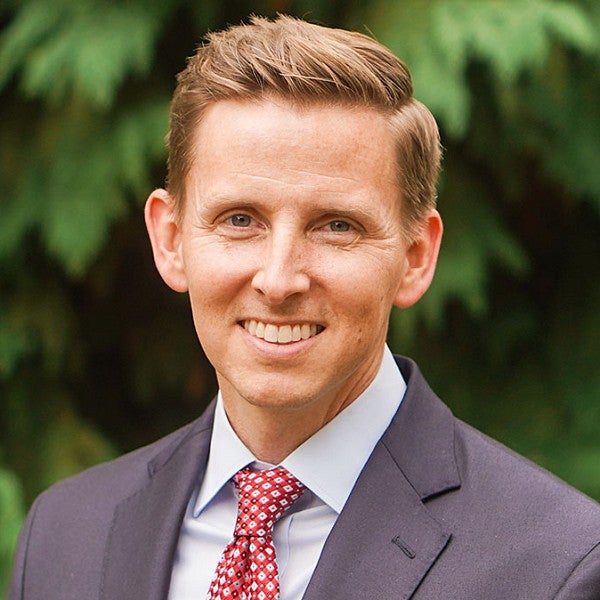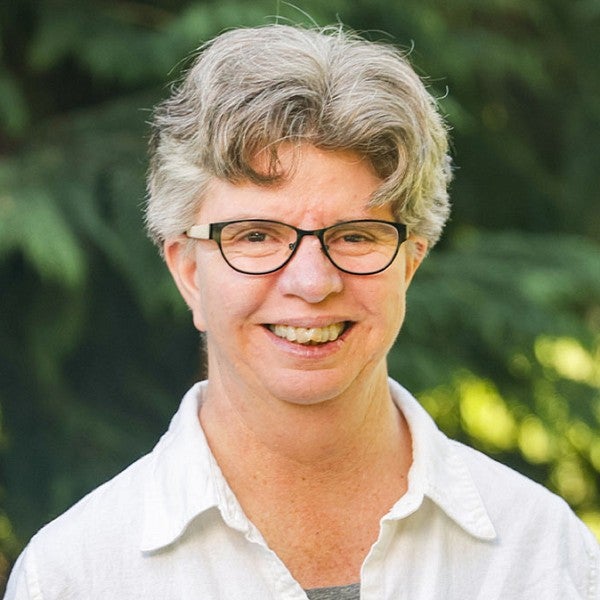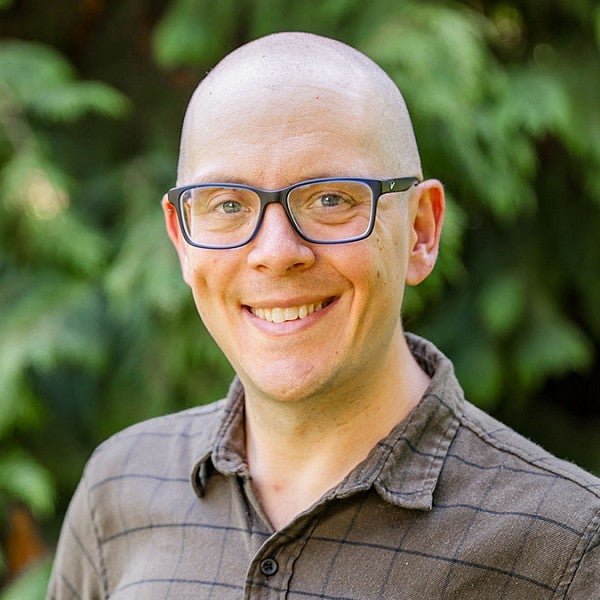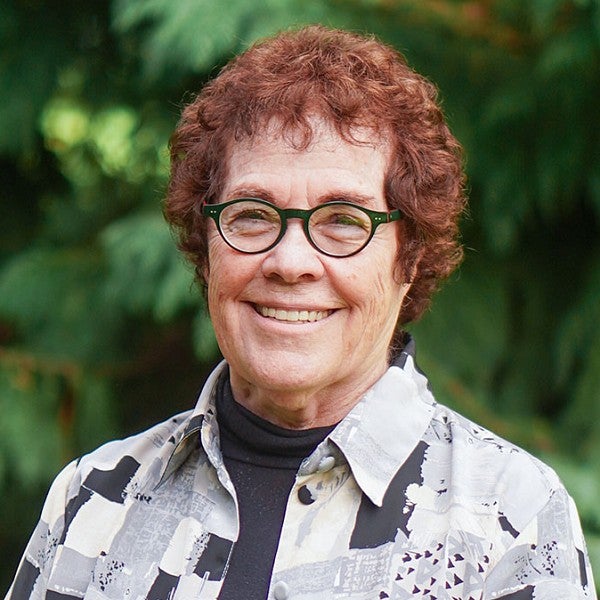Doctoral Degree in
Communication and Media Studies
Communication and media are among the most powerful forces shaping the world today. In our Communication and Media Studies PhD program, you’ll work with some of the world’s top media and communication experts to research and contribute to this crucial field. Our school is one of the nation’s oldest accredited schools of journalism and communication, housed within an Association of American Universities R1 research institution.
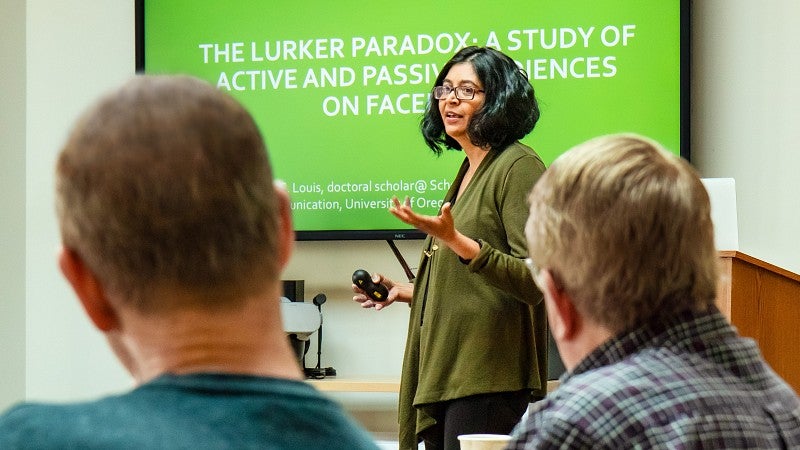
Doctoral Degree in
Communication and Media Studies
Communication and media are among the most powerful forces shaping the world today. In our Communication and Media Studies PhD program, you’ll work with some of the world’s top media and communication experts to research and contribute to this crucial field. Our school is one of the nation’s oldest accredited schools of journalism and communication, housed within an Association of American Universities R1 research institution.
Launch a Trailblazing Career in Media Research
In our doctoral program, you’re more than just a student. You’ll work as a co-author, scholar, and teacher as part of a welcoming and inclusive community influenced by perspectives from across many disciplines and cultures around the world. You’ll also conduct impactful research that contributes to the field and your research portfolio under the guidance of SOJC faculty advisors.
Our faculty are internationally recognized experts in many media and communication research topics, including science, health, and environmental communication; technology and society; game studies; global media; critical/cultural approaches to communication; persuasion and media psychology; media and public life; immersive and visual media; film; and more.
Launch a Trailblazing Career in Media Research
In our doctoral program, you’re more than just a student. You’ll work as a co-author, scholar, and teacher as part of a welcoming and inclusive community influenced by perspectives from across many disciplines and cultures around the world. You’ll also conduct impactful research that contributes to the field and your research portfolio under the guidance of SOJC faculty advisors.
Our faculty are internationally recognized experts in many media and communication research topics, including science, health, and environmental communication; technology and society; game studies; global media; critical/cultural approaches to communication; persuasion and media psychology; media and public life; immersive and visual media; film; and more.
Take flight with a Communication and Media Studies Doctoral Degree
Students in our doctoral program develop the knowledge, skills, experience, and research portfolios to claim teaching and research posts at top universities and think tanks around the world. But their ethics, analytical skills and innovative thinking set them apart in any field.
Take flight
with a Communication and Media Studies Doctoral Degree
Students in our doctoral program develop the knowledge, skills, experience, and research portfolios to claim teaching and research posts at top universities and think tanks around the world. But their ethics, analytical skills and innovative thinking set them apart in any field.
Communication and Media Studies PhD Program News
More News »
Named for renowned journalist Eric W. Allen, who founded the SOJC over 100 years ago, Allen Hall sits at the heart of the verdant University of Oregon campus. During your studies in Eugene, you’ll enjoy expert guidance, hands-on experience with the latest technology, and opportunities for collaboration.
You'll also have access to our state-of-the-art Experience Hub—part production studio, part research center, part hands-on learning lab—a place where students and faculty collaborate to develop innovative content and examine the media from every angle.
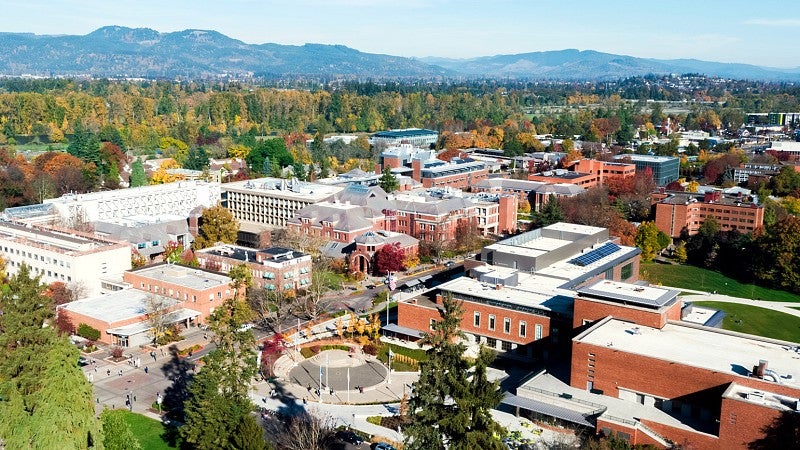
Study in the Beautiful Pacific Northwest
Named for renowned journalist Eric W. Allen, who founded the SOJC over 100 years ago, Allen Hall sits at the heart of the verdant University of Oregon campus. During your studies in Eugene, you’ll enjoy expert guidance, hands-on experience with the latest technology, and opportunities for collaboration.
You'll also have access to our state-of-the-art Experience Hub—part production studio, part research center, part hands-on learning lab—a place where students and faculty collaborate to develop innovative content and examine the media from every angle.
Fully Funded PhD
You bring the intellectual curiosity, we’ll take care of the tuition: Our doctoral candidates are fully funded for four consecutive years*, including health benefits and a stipend. We also offer resources for conducting research that contributes to the field while preparing you for a career in higher education or meaningful work in the public and private sectors.
*Eligibility for continued funding requires maintaining satisfactory academic progress.
Fully Funded PhD
You bring the intellectual curiosity, we’ll take care of the tuition: Our doctoral candidates are fully funded for four consecutive years*, including health benefits and a stipend. We also offer resources for conducting research that contributes to the field while preparing you for a career in higher education or meaningful work in the public and private sectors.
*Eligibility for continued funding requires maintaining satisfactory academic progress.
Student Research
Our doctoral candidates work with internationally renowned SOJC faculty experts to do groundbreaking research on today’s most pressing communication and media realities.
Student Research
Our doctoral candidates work with internationally renowned SOJC faculty experts to do groundbreaking research on today’s most pressing communication and media realities.
Meet Our FacultyView All Communication and Media Studies PhD Faculty →
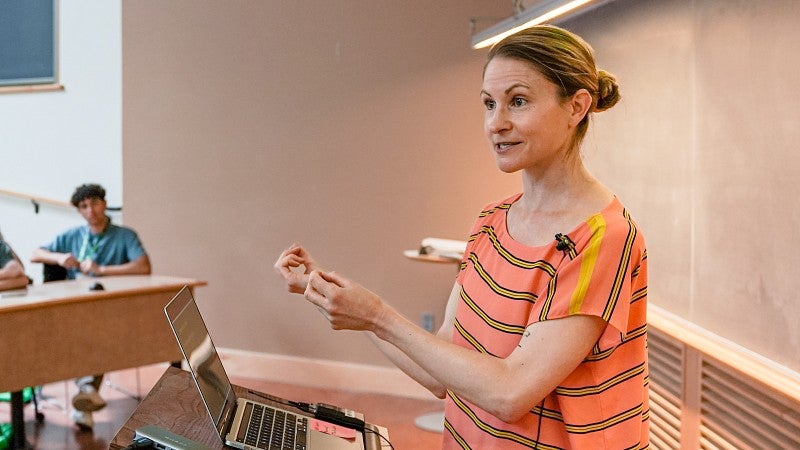
Whitney Phillips
Assistant Professor of Digital Platforms and Ethics
Whitney Phillips uses her research and teaching to help students and consumers of media navigate the potentially treacherous terrain of what she’s coined the “information hellscape.” The modern media landscape is fraught with political biases, implicit messages, and harmful communication, but it is also a powerful tool. So Phillips challenges and inspires her students to incorporate self-care and mindfulness into their media-consumption regimens.
Meet Our Faculty

Whitney Phillips
Assistant Professor of Digital Platforms and Ethics
Whitney Phillips uses her research and teaching to help students and consumers of media navigate the potentially treacherous terrain of what she’s coined the “information hellscape.” The modern media landscape is fraught with political biases, implicit messages, and harmful communication, but it is also a powerful tool. So Phillips challenges and inspires her students to incorporate self-care and mindfulness into their media-consumption regimens.

